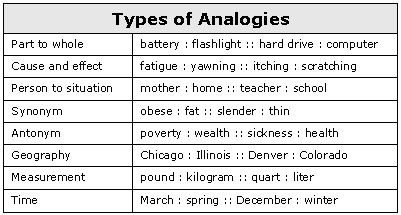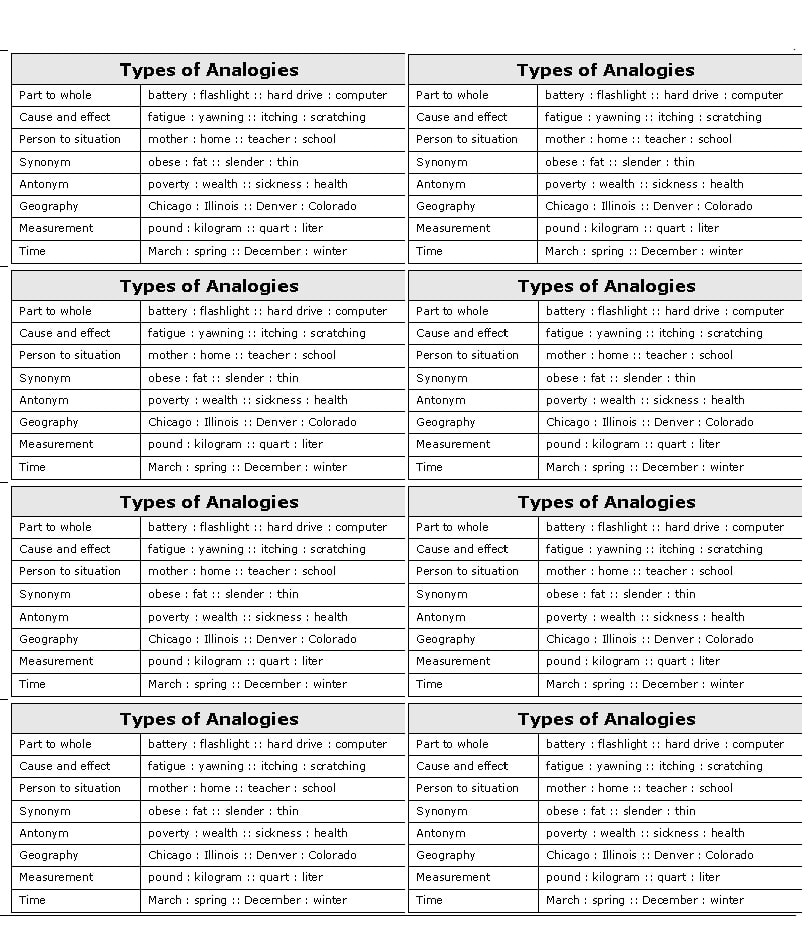
38. WORD ANALOGIES MADE EASY (Reading, Writing, Feedback)
Description: According to the Reading Educator website, word analogies allow students to connect familiar concepts with new ideas and prior experiences with new information. It is a critical thinking skill that must be used often in order to improve. Cut out one graphic per student (addendum below) so that they are able to focus on the work rather than where to begin.
Application: Use word analogies in most subjects.
Process: Print and distribute the Types of Analogies chart (Vaca and Vaca, 1995) and review the elements of an analogy with students. Model examples and allow them to practice creating their own analogies or provide partially created ones for students to complete. Once students are confident in creating analogies, select words from the text and, using the chart, create an assignment that reinforces the meanings of and relationships between these words.
Description: According to the Reading Educator website, word analogies allow students to connect familiar concepts with new ideas and prior experiences with new information. It is a critical thinking skill that must be used often in order to improve. Cut out one graphic per student (addendum below) so that they are able to focus on the work rather than where to begin.
Application: Use word analogies in most subjects.
Process: Print and distribute the Types of Analogies chart (Vaca and Vaca, 1995) and review the elements of an analogy with students. Model examples and allow them to practice creating their own analogies or provide partially created ones for students to complete. Once students are confident in creating analogies, select words from the text and, using the chart, create an assignment that reinforces the meanings of and relationships between these words.
Reference, Graphic, and/or for more information:
38. Word Analogies Made Easy
http://www.readingeducator.com/strategies/analogy.htm
Vacca, R.D., Vacca J. (1995). Content area reading. (5th. Ed.). Glenview, IL: Scott, Foresman.
38. Word Analogies Made Easy
http://www.readingeducator.com/strategies/analogy.htm
Vacca, R.D., Vacca J. (1995). Content area reading. (5th. Ed.). Glenview, IL: Scott, Foresman.

